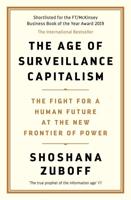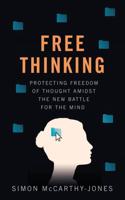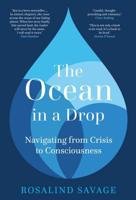Publisher's Synopsis
What hope will there be for us when computers can drive cars better than humans, do intricate legal work, identify faces, scurry helpfully around offices and factories, even perform some surgeries, all faster, more reliably, and less expensively than people? It's easy to imagine a frightening future in which computers simply take over most of the tasks that people now get paid to do.
While we'll still need high-level decision makers and computer developers, those tasks won't keep most working-age people employed or allow their living standard to rise. The unavoidable question will millions of people lose out, unable to best the machine is increasingly dominating business, education, economics, and policy.
The bestselling author of Talent Is Overrated explains how the abilities that will prove most essential to our success are no longer the technical, classroom-taught left-brain skills that economic advances have demanded from workers in the past. Instead, our greatest advantage lies in what we humans are most powerfully driven to do for and with one another, arising from our deepest, most essentially human abilities empathy, creativity, social sensitivity, storytelling, humour, building relationships, and expressing ourselves with greater power than a machine mind can ever achieve. This is how we create durable value that is not easily replicated by technology because we re hardwired to want it from humans.
These high-value skills create tremendous competitive advantage more devoted customers, stronger cultures, breakthrough ideas, and more effective teams. And while many of us regard these abilities as innate traits, he's a real people person, she's naturally creative, it turns out they can all be developed. Leading businesses, medical clinics and even the U.S. Army are now emphasising human interaction and empathy in their training programmes.
Meanwhile, studies have shown that our increasing reliance on technology for interaction and entertainment is not only making us less happy, trusting and likely to achieve good grades, it is also damaging our abilities to recognise emotion and harmonise with others the very skills we will need to prosper. As technology advances, we shouldn't focus on beating computers at what they do we ll lose that contest. Instead, we must develop our most essential human abilities and teach our children to value not just technology but also the richness of interpersonal experience. They will be the most valuable people in our world because of it. Colvin proves that to a far greater degree than most of us ever imagined, we already have what it takes to be great.











